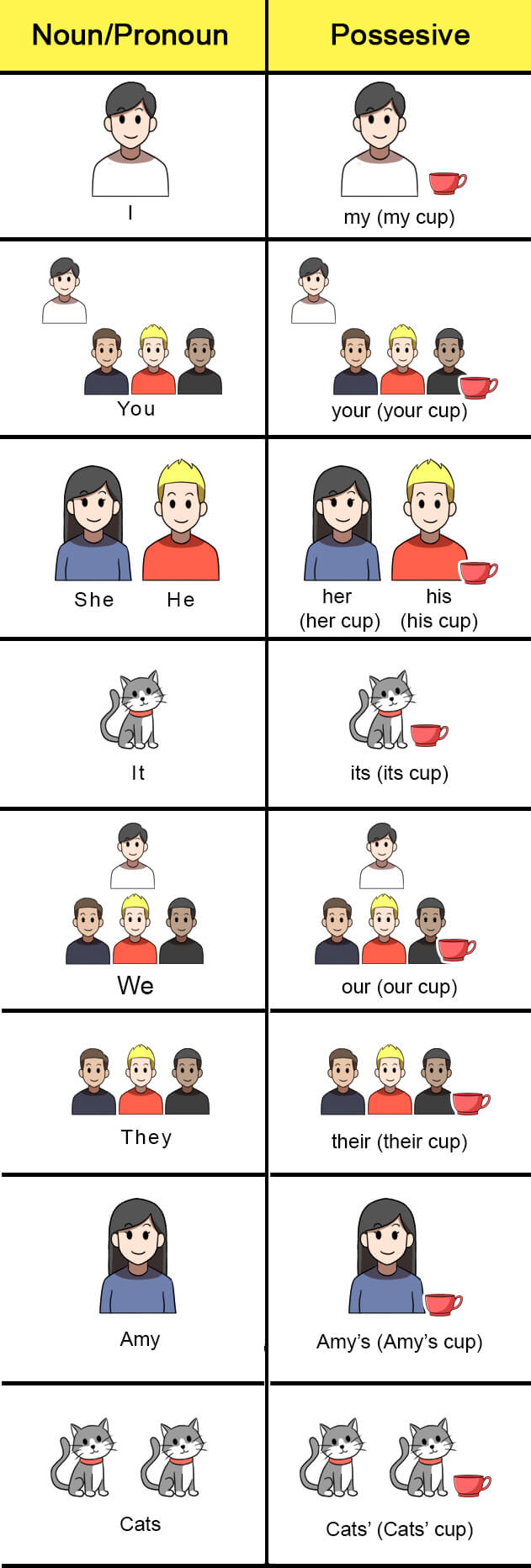Possessive Adjectives
- Possessive adjectives show who or what owns something.
- The possessive adjectives are: my, your, his, her, its, our, their.
- 'My' is used when something belongs to 'me', 'your' is used when something belongs to 'you', 'his' and 'her' are used when something belongs to 'he' or 'she'.
- Please remember that possessive adjectives always go before a noun.
Possessive adjectives go before a noun to show who or what owns something. The possessive adjectives in English are: my, your, his, her, its, our, their.
Each subject pronoun has a corresponding possessive adjective.

How to form a sentence
Put the possessive adjective before a noun.
Examples:
-
This is my book.
Subject ("This") + be verb ("is") + possessive adjective ("my") + noun ("book").
-
Is this your bag?
Be verb ("Is") + subject ("this") + possessive adjective ("your") + noun ("bag")?
Here are more examples.
Examples:
-
Is this your bag?
"your" = possessive adjective. "bag" = noun.
-
Her shoes are blue.
"Her" = possessive adjective. "shoes" = noun.
-
Their cars are old.
Subject (Possessive adjective "Their" + noun "cars") + be verb ("are") + adjective ("old").
Practice this topic with the AI English Tutor
AI English Tutor will teach you the grammar and practice it with you in a conversation format. Plus, 100+ practice questions on this topic to cement your understanding.
Try ALULA for free on your phone or tablet








Do you have any questions about this lesson? Ask in the comment section, below.